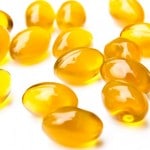
By Stephen J. Greenhouse, M.D.
Despite what you might have heard, vitamin deficiency alone is very rarely the reason for infertility in the United States. Likewise, there’s no one vitamin that has been proven to be effective in improving fertility. However, taking a combination of several key vitamins in adequate amounts before getting pregnant can maximize the health of the pregnancy and the baby. Doing so will give mother and baby both the best start at a healthy life.
Many women don’t have their first prenatal appointment with their doctor or start thinking about prenatal vitamins until they are already 8 weeks pregnant. By this time, the most critical organs in the fetus, such as the heart, the brain, and the spinal cord have already been developed. Therefore, in order for vitamins to have maximum impact, we tell our patients, if you are of reproductive age and having unprotected intercourse, you should take a daily prenatal supplement that includes a range of vitamins.
Vitamins for a Healthy Pregnancy

Folic acid.Folic acid is one of the best preventive care measures ever discovered. Folic acid is a B vitamin that can significantly reduce the risk of a fetus developing neural tube defects in early pregnancy. Neural tube defects are defects with the brain, spine, or spinal cord. These defects can cause Spina Bifida and are the second most common birth defect among women in the United States. The good news is that women who take folic acid supplements have an 80 percent reduction in neural tube defects. Folic acid can also reduce the risk of heart-related birth defects. Even though you may think you eat a healthy diet, you actually cannot get enough folic acid from your diet alone to achieve this reduction in risk. Women who could become pregnant should take 400 mcg (0.4 mg) of folic acid through a prenatal vitamin.
Other B vitamins. Both vitamins B6 and B12 are important for healthy red blood cell development. Certain forms of anemia are related to vitamin B deficiencies. However, most prenatal supplements have enough of the B vitamins to overcome the risk of deficiencies.
Iron. Iron-deficiency is the most common cause of anemia in women. Taking a prenatal supplement that includes iron not only helps protect the fetus from birth defects, but can minimize a woman’s risk of anemia. Prenatal supplements with iron can be especially important for vegetarian moms-to-be .
Calcium. Having enough calcium in your body is not only important for strong bones, it also reduces the risk of high blood pressure during pregnancy and pre-term, or early, labor.
Iodine. While it is uncommon in the United States because we consume table salt—the most common source of iodine—iodine deficiency can cause birth defects and an increased risk of miscarriage and stillbirth. Iodine is included in most prenatal supplements.

Vitamin D. Vitamin D is important for calcium absorption and bone growth. Recent data also shows it may play a role in immune system function and that low levels may be linked to other diseases, such as certain cancers. Studies on fertility show that women who are vitamin D deficient have lower implantation rates and that, when vitamin D levels are boosted to normal range, implantation rates improve. About 80 percent of women may have some vitamin D insufficiency. While there is controversy about the ideal level of supplementation, at Shady Grove Fertility, we recommend that women take a vitamin D supplement if their level is below 30 ng/mL. Ask your doctor to check your vitamin D level because many multivitamins and prenatal vitamins do not have enough vitamin D to help women with a deficiency.
Vitamins A & E. Vitamin A is important for visual function and fetal growth. Vitamin E is an antioxidant that protects the body from damage from free radicals. However, these vitamins are fat-soluble, which means that they are stored in the body for very long periods of time. In high doses, they can cause birth defects.
Omega 3 fatty acids. While you don’t necessarily need to take omega 3 supplements prior to pregnancy, they have multiple health benefits and are important in fetal brain development. Omega 3 fatty acids are found in foods such as fish, walnuts, flax seed, and vegetable oil. Be careful that your omega 3 supplement does not contain mercury. High doses of mercury can be toxic to the fetus, which is another reason pregnant women should limit the amount and kinds of fish they eat. In general, larger fish, such as swordfish, contain more mercury than smaller fish, such as tuna and salmon.
Herbs and Probiotics

Many women looking to enhance their fertility may turn to herbs, such as angus castus, chasteberry, or evening primrose oil, because they have heard about their benefits in restoring hormone imbalance. At SGF, we do not recommend that women trying to get pregnant take herbs because we cannot guarantee their safety. The Food and Drug Administration (FDA) does not regulate the vitamin industry, which includes herbs, so it is common for herbs to not contain the ingredients that they claim to have. Just because a product’s label states that it is a fertility enhancer, doesn’t mean that it is.
Herbs and their role in fertility have not been well studied. Be careful because some of these supplements, taken in high doses, can cause liver toxicity, birth defects, and bleeding. Tell your doctor about everything you are taking.
Despite what you may have read, probiotics in the digestive system do not travel to the vagina and make it more welcoming to the sperm. Probiotics can be helpful for some digestive conditions, such as inflammatory bowel disease, but have not been proven to lower the acidity of the vagina.
Antioxidants for Men
There is limited data on what improves sperm quality or function. Sperm cells are one of the few cells in the body that don’t have a mechanism to fight damage from free radicals. Therefore, people speculate that if a man takes antioxidants, such as vitamin C, that he can improve sperm quality. Well, no data exists to prove this reasoning. It won’t hurt a man who is trying to conceive with his partner to take a multivitamin with these antioxidants, but be aware that, in high doses, these vitamins can build up and become toxic.
What You Can Do
Are you taking a prenatal vitamin? Again, if you’re a woman of reproductive age, you should be taking a prenatal vitamin daily. And before trying herbs to enhance fertility, beware. It’s best to have a conversation with your doctor. By consulting with your doctor, you can be sure you are maximizing your chances for a healthy pregnancy and a healthy baby.





